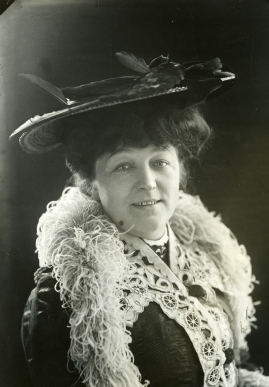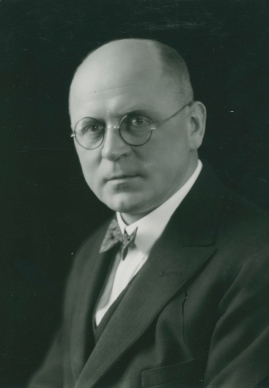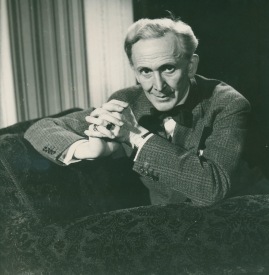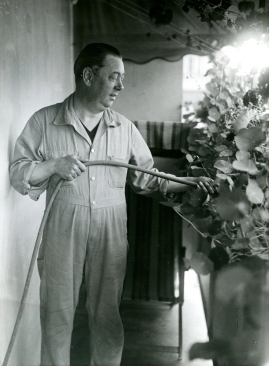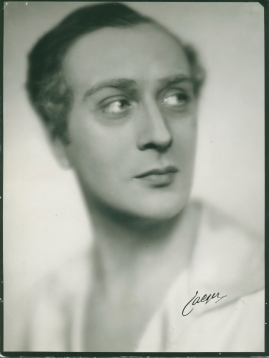Anna Hofman-Uddgren
Table of contents
- Basic facts
- Links and resources
- Biography
- Awards
- Films
- Original work
- Soundtrack listing
- Groups
Basic facts
Media (1)
| Alternative names |
|
|---|---|
| Director |
|
| Cast |
|
| Show all films |
Biography
Swedish actress, variety artist, theatre manager and film director. Born as Anna Maria Hammarström in Stockholm. Married to journalist and script writer Gustaf Uddgren.-Anna Hofman-Uddgren, who for a long time was viewed as Sweden's first female film director*, was a colourful personality who took up the art of filmmaking with energy and enthusiasm during a brief period prior to the Golden Age of Swedish film. She was an illegitimate child whose parental origins are disputed and who grew up in Stockholm. At the age of seventeen her mother took her to meet...
Links and resources
Biography
Swedish actress, variety artist, theatre manager and film director. Born as Anna Maria Hammarström in Stockholm. Married to journalist and script writer Gustaf Uddgren.
-
Anna Hofman-Uddgren, who for a long time was viewed as Sweden's first female film director*, was a colourful personality who took up the art of filmmaking with energy and enthusiasm during a brief period prior to the Golden Age of Swedish film. She was an illegitimate child whose parental origins are disputed and who grew up in Stockholm. At the age of seventeen her mother took her to meet King Oscar II, who was subsequently said to have paid for Anna to study in Paris. After four years in that city she came back to Stockholm as a fully-fledged chansonnette singer. Anna was a great success on the celebrated Stockholm entertainment scene of a century ago, especially at Djurgården's Kristallsalong, of which she became the manager.
Anna Hofman-Uddgren's contribution to cinema history comprises six films, all of them made between 1911-1912. They seem to have been made at the behest of the cinema owner H.P. Nilsson - "Häst-Nisse" as he was known - who was keen to show Swedish productions in his cinemas. She made three films written by her husband, the journalist Gustaf Uddgren, together with the already experienced cinematographer Otto Bökman, one film with an original screenplay by Elin Wägner and two films based on August Strindberg's plays "Miss Julie" and "The Father". The films were shot in various locations in Stockholm, often outdoors and starring well-known actors. Three of them feature a youthful Gösta Ekman, and Sigurd Wallén made his film debut in Systrarna ('The Sisters', 1912). Gustaf Uddgren had asked for permission from Strindberg to film "Miss Julie" and "The Father", receiving the celebrated response: "Go ahead and make as much cinema as you like of my dramas."
Screened at Häst-Nisse's flagship cinema Orientaliska Teatern on Stockholm's Drottninggatan, all six films were well received by the contemporary press. Only one of them, Fadren ('The Father', 1912), has survived. Essentially a filmed stage performance, it is mostly remarkable for the visible breath of the actors (it was filmed outdoors) and the frequent opening and closing of doors on the set. The film probably gives a somewhat distorted impression of Hofman-Uddgren as a filmmaker. In an interview during the filming of Miss Julie (1912) she speaks of the need to show things in film which are only mentioned in the play itself. As such, her Miss Julie contained both the visually alluring dance at the barn and the dramatically titillating seduction scene. She also seems to have made use of subjective images and a moving camera, and her second film, Blott en dröm ('But a Dream', 1911), was, as the title suggests, a variant on the dramatic technique - which would subsequently become so familiar - of allowing the entire story to be revealed as a dream in the end.
When Häst-Nisse died in 1912, Anna Hofman-Uddgren stopped making films and returned to the stage.
Film historian Professor Rune Waldekranz wrote a long essay about Anna Hofman-Uddgren in "Chaplin" (no. 3, 1983); and the theatre scholar Marika V. Lagercrantz wrote "An Unfinished Story. The Variety Star Anna Hofman" in the anthology "Kulturellt: Reflektioner i Erling Bjurströms anda" (Linköping 2009).
Mikaela Kindblom (2011, edited in 2016)
(translated by Derek Jones)
*Certain film historians considers Ebba Lindkvist, who in October 1910 directed the film Värmländingarna, as the first female director in Sweden.
Films
| Director | |
|---|---|
| Screenplay | |
| Cast |
